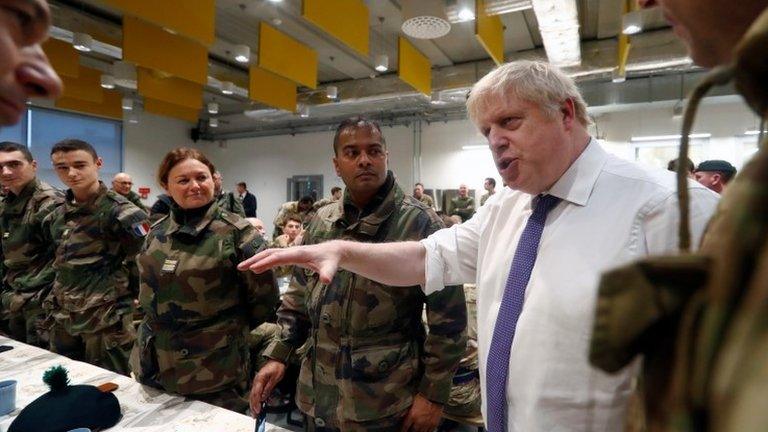UK to shift foreign policy focus following review
- Published
- comments
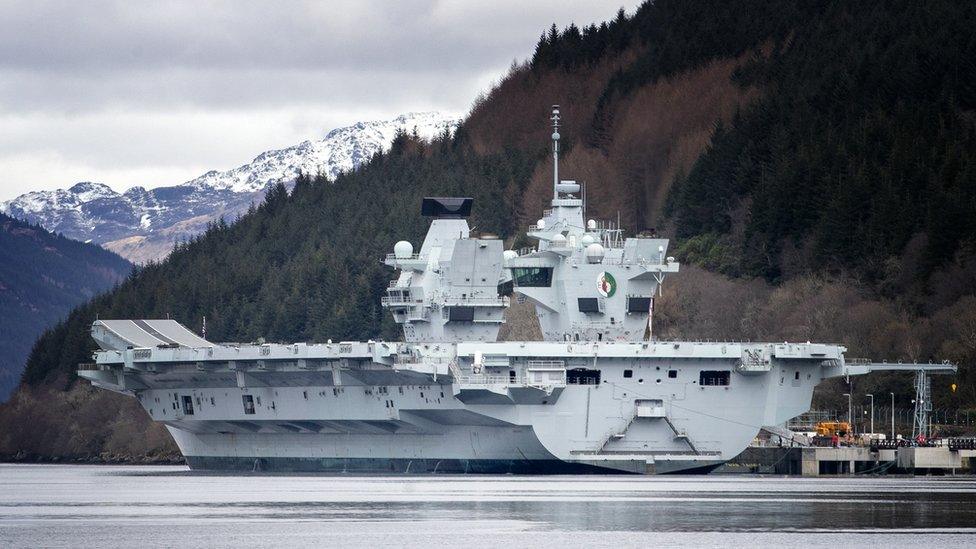
The UK is pledging to shift its focus towards countries such as India, Japan and Australia, after a year-long review of its foreign policy.
The government said it would boost alliances in the Indo-Pacific region, describing it as "increasingly the geopolitical centre of the world".
Foreign Secretary Dominic Raab said the UK would work with China on issues such as climate change.
And he warned against adopting a "Cold-War mentality" with the country.
The review, which Prime Minister Boris Johnson will set out later in the House of Commons, also paves the way for an increase in nuclear warheads.
Labour says the strategy will leave the UK "woefully unprepared".
The publication of the review comes amid growing internal pressure on the government from Conservative circles to harden its line on China over issues such as its clampdown on Uighur Muslims and democratic rights in Hong Kong.
Mr Raab said there were "positives" to the UK's relationship with China, including over trade and investment. He added that it would also not be possible to "shift the dial" on climate change without co-operating with the country.
Speaking on BBC Radio 4's Today programme, he said there would also be "difficult issues" to manage, including over protecting UK industrial secrets and telecoms infrastructure.
But he warned: "It wouldn't make sense, I don't think it would be feasible to go into some old, outdated Cold War mentality with China."
Pressed on whether the UK should toughen its stance on the country, as advocated by so-called China hawks, Mr Raab replied: "China is here to stay."
Mr Raab also said more nuclear warheads could be required as part of the Integrated Review, as they represented the "ultimate insurance policy" against global threats.


For years Britain's place in the world was defined by its membership of the European Union and its relationship with the United States.
It was often seen as a bridge between the two.
But Brexit changed all that. So now the government is looking for Britain to play a new global role.
The big idea of the so-called Integrated Review of foreign policy is a new focus on the Indo-Pacific.
The government wants to boost Britain's trade, security and diplomacy in a region that is seeing fast economic growth.
But it also wants to build new partnerships as Britain recalibrates its relationship with the biggest player in Asia, namely China.
The question is what this new "Indo-Pacific tilt" will actually mean in practice and whether it will come at a cost of not focusing enough on repairing relations with the EU.

The long-awaited integrated review of foreign and defence policy will also set out plans for a White House-style situation room built in the Cabinet Office.
It will also include plans for a new counter-terrorism operations centre, intended to improve the speed of response to terrorist incidents.
Sir Alex Younger, a former head of MI6, told Today the gap between western nations and China had closed in important ways during the coronavirus pandemic, and a new approach was now needed.
While he said there was "no sense declaring a new Cold War", Sir Alex admitted both China and the Russian government presented "generational" threats to Britain.
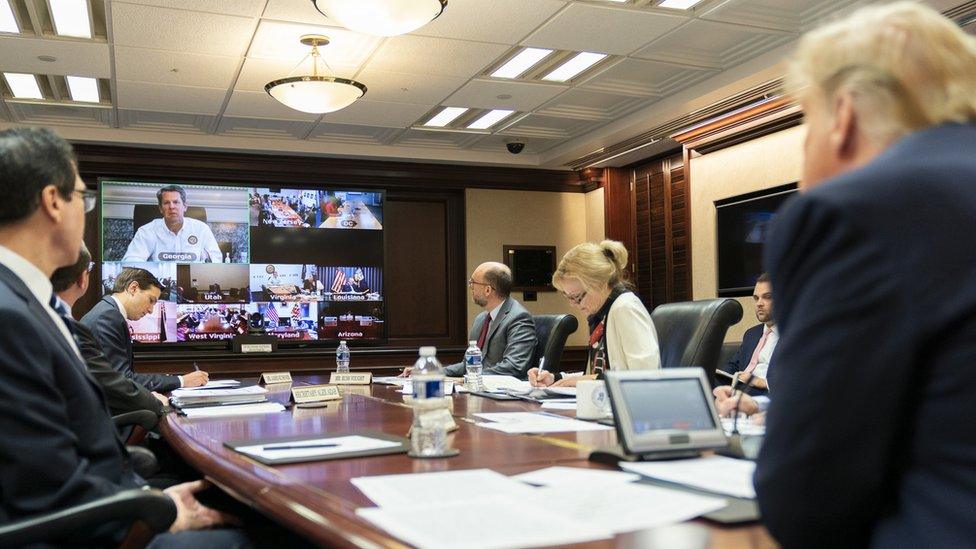
Plans include building a White House-style situation room in the Cabinet Office
While the government says Nato remains the bedrock of defence and security in the Euro-Atlantic sphere, it wants to work alongside allies to "shape a more open international order in which democracies flourish".
BBC security correspondent Gordon Corera said the aim of the review would be to showcase offensive as well as defensive capabilities, suggesting high-tech investment in fields like artificial intelligence will help modernise the military, maintain Britain's power and bring economic growth at home.
But he said becoming a technology "superpower" and competing with the likes of China was no easy task.
Labour's shadow foreign secretary Lisa Nandy said there was a "yawning chasm" between the government's words and actions and said government policy had "left our defences down in our own backyard".
'Black hole'
The publication of the review comes months after Boris Johnson announced a £16.5bn increase in defence spending over the next four years.
At the time, he said the funding would allow for investment in an agency dedicated to artificial intelligence and a "space command" capable of launching the UK's first rocket by 2022, as well as a cyber corridor across the north of England which would include headquarters for the new National Cyber Force.
But MPs on the Commons Public Accounts Committee have warned the extra funding could be swallowed up by a "black hole" in department finances, with the Ministry of Defence (MoD) facing a potential £17bn shortfall in its current equipment programme.
The committee said a further £20bn the military wanted to invest has not been included in the budget and the MPs also accused the MoD of making unrealistic claims about future efficiency savings.
Its chair, Meg Hillier, said it was crucial that the extra money for defence was not eaten up by the "constant debilitating" budget overruns that "have been eroding our national defence and security for years".
The MoD said the increased funding would "restore financial sustainability".

WHEEL OF MISFORTUNE: Comedians Alison Spittle and Fern Brady confess their funniest and freakiest experiences with religion
16 TRACKS TO ESCAPE WITH: SG Lewis handpicks rejuvenating songs to help you zone out from lockdown life

Related topics
- Published15 March 2021
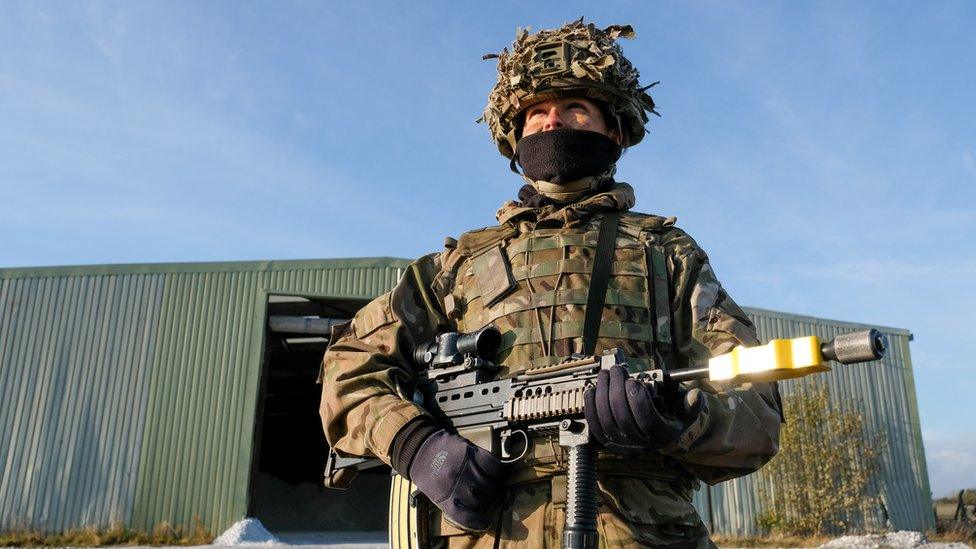
- Published24 February 2021
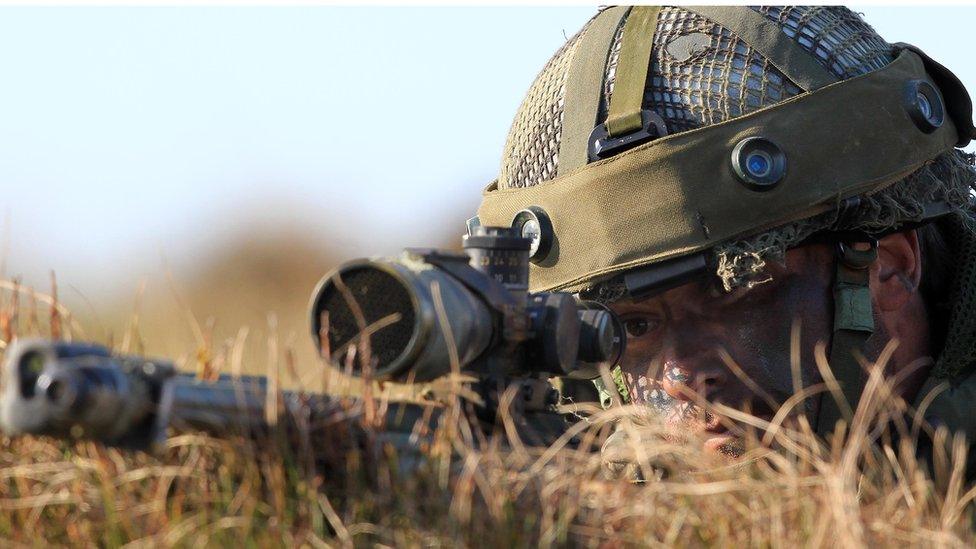
- Published19 November 2020

- Published26 February 2020
